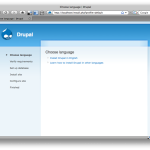Blogs, Everyone? Weblogs Are Here to Stay, but Where Are They Headed?
In a recent artical (reg req) from Wharton Business School, "Blogs, Everyone? Weblogs Are Here to Stay, but Where Are They Headed?"
"The big question is whether blogs, short for weblogs, have the staying power to become more than just online diaries. Will bloggers upend the mainstream media? What legal protections should bloggers have? Is there a blogger business model? While no definitive answers exist just yet, experts at Wharton advise questioners to be patient. Blogging, they note, will be around for a long time."
Wharton legal studies professor Dan Hunter puts blogging right up there with the printing press when it comes to sharing ideas and disseminating information."
"At its most basic level, it's a technology that is lowering the cost of publishing" and turning out to be "the next extension of the web," says Wharton legal studies professor Kevin Werbach. "Blogging is still in its early days. It's analogous to where the web was in 1995 and 1996. It's not clear how it will turn out."
What is clear is that opportunities for blogging abound. Companies can use bloggers to put a more human face on interactions with employees and customers; marketers can create buzz through blogs; and bloggers can act as fact checkers for the mainstream media. There are dozens of applications for blogs, Werbach notes, and many that haven't even been conceived yet. "Blogging is really driven by interest and desires, not commercial activity," says Wharton marketing professor Peter Fader. "It's rare to see something take off like this when commercial prospects are so minimal. People just want to share ideas."
Overall, Hunter adds, media angst over blogs is misplaced. "The idea that blogging will kill media is as overblown as when they said that e-commerce would kill the retailing business."
Is There a Business Model?
While corporations can chalk up blogging as a marketing expense, the story is a little different for individuals. Can blogging pay the bills? If you are lucky, you can pay the hosting fees, but that's about it, say Wharton experts. Nevertheless, Werbach predicts that multiple business models will emerge. Individuals ages 18-25 are spending more of their time online, and marketers need to reach them. That means blogging could become a way to target the most coveted audience for media.
What happens when bloggers try to make money off their sites? "It's not a matter of when bloggers want to be paid, but when do readers want to pay for content," says Fader. "The mainstream media hasn't had the guts or savvy to start charging. It will be difficult for bloggers."
While most agree that blogging will continue to be popular, its next steps are uncertain. Demopoulos suggests that blogging overexposure is on the horizon. "Right now, blogging is trendy," he says. "I see that lasting a few years, but it will slow down." Hunter contends that blogging is here to stay, as many sites start to incorporate blogging features, and some news sites become more blog-like. The blogosphere will also become known for topics other than technology and politics. Two things are certain: Blogging will remain disruptive to the traditional media, and new uses will surface. "You are going to see blogging move to video and instant messaging," says Werbach. "It's just the beginning."









